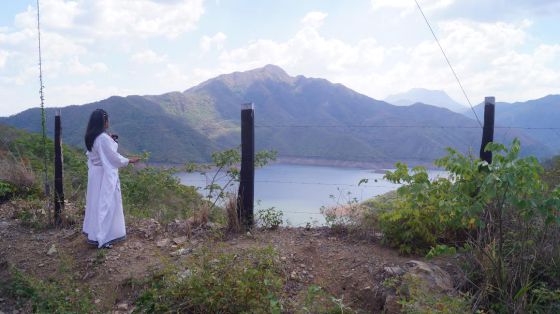
A three year old child died of malnutrition last Friday in
Uribia, a town of Colombia located in the department of La Guajira, mostly
inhabited by the indigenous population Wayuu. The lack of water in recent years
has taken the lives of nearly 5,000 children, according to Javier Rojas, leader
of the Association of Traditional Indigenous Authorities Shipia Wayuu Wayuu.
The more than 400,000 people who make up this community live 365 days a year
with temperatures between 35 and 42 degrees, without water. Since a mining
company was installed more than 10 years in the region, there has been a decline
in the possibilities to access the liquid. The deaths make clear the drama that
is lived.
The case has already reached the Inter-American Commission
on Human Rights (IACHR), which called on Wednesday the Colombian Government to
explain what measures it has taken to address this community and follow up to
any attempts they have made to solve the food crisis that also affects those
indigenous peoples. At the end of the process, according to Carolina Sáchica,
the lawyer handling the case on behalf of the Wayuu, they expect to recover the
water from the largest water resource in the area, the Rancheria River, which
was dammed for the exclusive use of companies expected engaged in coal mining.
Gonzalo Guillén, Colombian journalist, documented in
pictures what the Wayuu live and now the Commission is studying them as proof
to resolve the process. Under the name "The river that was stolen” Guillen
looks at what it means for this community to live without water. “Most of the population
speaks their own language, very few understand Spanish, making it difficult to
communicate with officials when they try to reclaim or seek a solution. They
feel discriminated against, abandoned" he explains.
The journalist known for investigating corruption cases that
many do not dare to report went into the community for more than two years.
What he found described in one word: "monstrosity". He explains it by
arguing how difficult it is to see how thousands of children die without state
action. Guillen ended up doing this report after his journalistic work on the
governor of La Guajira, Francisco Gomez, who is currently detained,
investigated for the crime of murder. It was there that he found the
indifference of a country that was exterminating an indigenous community.
"In addition to corruption in the region, the only
river is in the dammed area, so since about three years ago the water stopped
running," says the journalist. He
hopes the documentary will not only serve as evidence for the Commission, but
also to open the eyes of those who have not dared to see the sad reality.
"The torrents of groundwater have also been affected. Before
you could take liquid only 20 meters deep, but now they are over 60. It is
almost impossible. People there live in worse conditions than in any country in
Africa, and the saddest thing is that it is a region that receives millions in
royalties, but nothing ever comes to the community," says the journalist.
The Sáchica lawyer, director of the Legal Clinic of the
University Jorge Tadeo Lozano explains that he decided to take the case after
last year visit of Rojas who, as an indigenous leader, told him about the
living conditions of their community. "We saw that there was a systematic
violation of fundamental guarantees and rights as a result of state neglecting
and indifference. We found that children are dying from multiple preventable
causes. One is the lack of water and food; that trigger other problems which
aggravate the situation, "said Sáchica.
Another test that is expected to serve in international
forums is a report of People’s Office for Defense, which last year surveyed the
territory. The document summarizes the tragedy in one sentence: "The
constant department of La Guajira is suffering: mothers who lost their sons and
daughters; of children who walk in the hot sun for water; Wayuu are cornered by
hunger, violence and corruption."
No comments:
Post a Comment